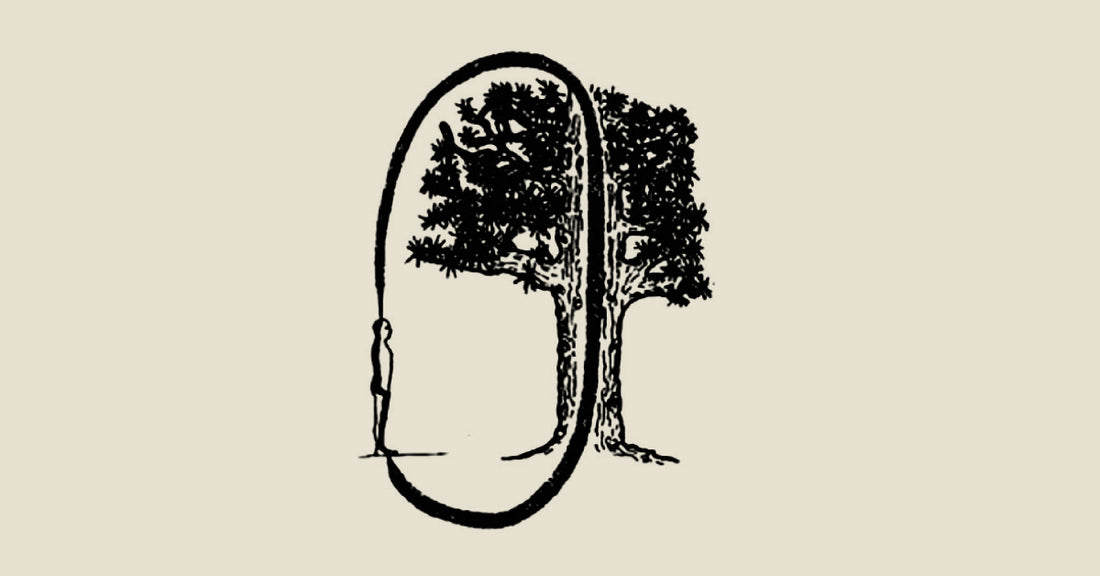Laura Dawn considered herself a good psychedelic citizen, but after an iboga journey a few years ago, her perspective shifted. Dawn had personally (and later, professionally) worked with plant medicines for over two decades. She understood the nuances of psychedelic culture—how plant medicines changed her relationship to depression and addiction, how psychedelics impacted her creativity as an entrepreneur—but still had more to learn about conserving the plants.
“I was aware of the sustainability issues that iboga was facing, but not to the extent that I should have been informed,” Dawn tells Trends w/ Benefits. “I'm a white, privileged person who is consuming this medicine for psycho-spiritual purposes and what impact is my choice having?”
The day following Dawn’s iboga journey, a friend introduced her to an organization focused on iboga conservation. She learned about the plant’s current state: how iboga is teetering toward extinction in the wild in West Africa, and that demand far outpaces supply and affordability for community members whose cultural practices center around the plant. These realizations led Dawn to deeply consider what reciprocity and living harmoniously with both nature and Indigenous cultures would look like. In the psychedelic space where community and connection are paramount, how can consumers conserve the plants they use to heal and honor the Indigenous peoples whose traditions and knowledge are tantamount to the plants’ survival? The desire to work toward this harmonious balance existed, Dawn says, but the mechanism for solidarity didn’t yet exist. “The thing I kept hearing over and over again was that people didn't really know how to give back or where,” she says. “There wasn't really an easy way to do that.”
So, Dawn decided to make one. Grow Medicine, which launched in May 2022, was designed to give the psychedelic community a simple, trustworthy and transparent platform to donate to Indigenous-led organizations working to conserve these medicines. Contributors can choose from five keystone medicines to support: ayahuasca, iboga, mushroom, peyote, and toad. Simply click on which bioculture you’d like to support, select your donation amount and read about which organization will benefit from your contribution.
Late last summer, while Dawn was still developing Grow Medicine, she met Sutton King and Miriam Volat of the Indigenous Medicine Conservation Fund. At that time, the IMC Fund was looking to create educational materials for the psychedelic community around sustainability and plant medicine. When King, the program director, heard about Dawn’s plans for Grow Medicine, which also includes an education component, the platform felt like a natural fit for the IMC Fund. “Why don't we just partner and join forces here?” King recalls thinking. “The fund is really this vehicle for organizations, large funders, larger checks, but how could someone [contribute] on the individual level, who is coming into a medicine circle or doing psychedelic-assisted therapy and wants to give back to the communities who have protected and steward of these medicines?”
Throughout her career in the psychedelic space, King has often engaged in conversations concerning the role and responsibility of the ally on an individual basis. Grow Medicine allows these individuals to support Indigenous communities through benefit sharing. Reciprocity, a well-intentioned goal in the psychedelic movement, is the notion that Indigenous communities have consented to widespread use of their medicines. But the psychedelic community is not there yet, Dawn says. Instead, benefit sharing provides a framework for consumers to give back financially to the people whose practices and cultures you’ve personally benefited from. “Indigenous cultures haven't given widespread consent around plant medicine use,” Dawn says. “What we are really talking about is benefit sharing, so that you can offer solidarity-based support.”
Buy-in from Indigenous peoples is paramount to the model’s success. Each benefiting organization, such as the Indigenous Peyote Conservation Initiative and the Union of Indigenous Yagé Medics of the Columbian Amazon, has been assessed and selected by the IMC Fund. Donations provide them with the much-needed resources to help preserve the land and traditions associated with a specific medicine—no strings attached. The groups themselves determine how the funds will be used, like creating centers for knowledge and language sharing, and not necessarily helping grow the crop itself. Funds will support cultural practices, traditions and ecological conservation. “The resources that we're providing them are life-changing—it's supporting an entire bioculture,” King says. “These medicines are what keep these communities together … To be able to support Indigenous peoples, to be able to steward their own conservation programming and empower them to do what they know how to do, I think that that's been life-changing for them.”
The platform’s aims are twofold: To provide an avenue for financial solidarity and to educate the psychedelic community on their relationship with the stewards of the plants. Defining terms like “benefit sharing,” “reciprocity,” and “keystone medicines,” and shining a light on sustainability issues in producing the plants are the first steps in creating a more intentional user base—one where individuals can see the wider impact of their consumption beyond their immediate circles.
In the long term, Dawn hopes the benefit sharing ethos of Grow Medicine becomes ingrained in Western psychedelic culture. That every time someone partakes in an ayahuasca ceremony or chooses psilocybin, they’ll also pay homage to the plant’s historical lineage. “Let's show up and be in the right relationship with the traditional knowledge holders of these medicines,” Dawn says.
Allie Volpe is a journalist based in Philadelphia. She has contributed to the New York Times, The Atlantic, Rolling Stone and more. Follow her on Twitter.
Read more: Is This Trip Really Necessary?
Read more: Hanifa Nayo Washington is Bringing Community to the Psychedelics Movement
Read more: Rethinking the Road to Recovery



